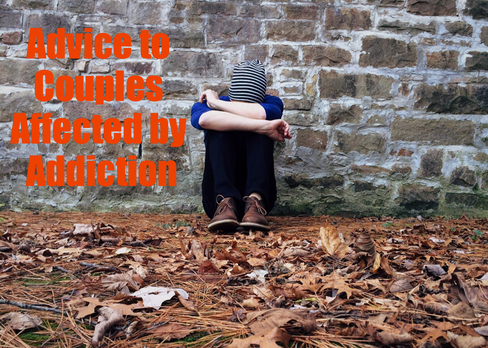|
Photo Credit: Wokandapix, Pixaba Author: Caleb Anderson - Caleb Anderson developed an opiate addiction after being in a car accident. He’s in recovery today and wants to inspire others to overcome their addictions.
Addiction can negatively affect relationships with friends, coworkers, children, parents, siblings, and other family members. But addiction can cause the greatest divide between the addict and his or her spouse or significant other. When addiction causes issues in a marriage or any other committed relationship, couples often wonder how to get help not only for the addiction, but also for their relationship. Fortunately, there are ways to get help for both. How it Harms the Relationship When addicts abuse drugs or alcohol, they tend to focus more of their attention on their addiction than their significant other, which causes issues in the relationship. The addict may stay out late, spend too much money to support their addiction, or not take care of responsibilities. Issues can also arise from infidelity related to the drug or alcohol abuse. While many couples have issues and fight, couples that have one person who is an addict often fight more frequently, and the fighting can sometimes be violent. Many times the main topic of fights is the addiction or issues related to the addiction. Also, the fighting itself can lead to more drinking or drug abuse by the addict. Beyond fighting, there are other signs that indicate the addiction is causing harm to the relationship to the point that help from a treatment professional may be needed. Having to make excuses on behalf of the partner, which only enables the addict, is a sign to reach out for help. If the addict claims he or she abuses drugs or alcohol to relieve tensions from fights about their addiction, it’s time to seek professional help. Likewise, if he or she shows any signs of domestic violence or if the family becomes isolated from friends and other relatives to hide the addiction, then the couple should seek assistance. How to Help a Loved One Get Treatment Helping a loved one to get treatment is rarely an easy task. Even if you beg your partner to go to treatment or threaten to leave (which isn’t a recommended tactic), it’s unlikely to be enough to entice him or her to seek treatment. That being said, an addict will not typically seek treatment on his or her own. Using the right tactics can increase the likelihood that your significant other will go to addiction recovery. If the addict is apprehensive about treatment, try to at least convince him or her to get an evaluation from a doctor. Provide the information for an appropriate physician or health professional. You can call beforehand to ensure the doctor is comfortable speaking about addiction. If not, ask for a referral. Accentuate that it takes a lot of courage to seek help for an addiction, and while addiction recovery is a lot of hard work, scientific evidence proves that treatment works, and people go into recovery every day. Remind him or her that all chronic diseases can take several attempts at treatment to find the right approach, but you’ll offer your support throughout the process. Avoid staging an intervention. These rarely work, and usually end up backfiring. Instead, explore treatment centers that might appeal to your significant other to help encourage treatment. “Treatment approaches must be tailored to address each patient's drug abuse patterns and also other medical, psychiatric, and social problems,” says the National Institute of Drug Abuse. How to Heal as a Couple Even if the partner is successful with addiction recovery, both partners should treat the issues in the relationship through counseling. The issues in the relationship will not go away because the drinking or drug abuse has stopped. “Many couples are both surprised and disappointed that they continue to have many fights and arguments after the substance abuse has stopped,” says the American Association for Marriage and Family Therapy. Lingering relationship issues can create a catalyst for a relapse to drinking or drug use. Lasting addiction recovery requires the relationship to improve. While eliminating the alcohol or drugs is a starting point, a caring and healthy relationship can be a factor in maintaining that sobriety. Addiction and relationship problems are unlikely to improve on their own. The best way to help the addict and your relationship is to seek treatment for addiction recovery as soon as possible. The longer you wait, they worse the problems will likely get. Begin taking steps in the right direction today.
6 Comments
|
AuthorThis is Breeze Counseling's blogspot were you can find useful tips and self-help information. Please feel free to leave your comments. Archives
July 2018
|

 RSS Feed
RSS Feed